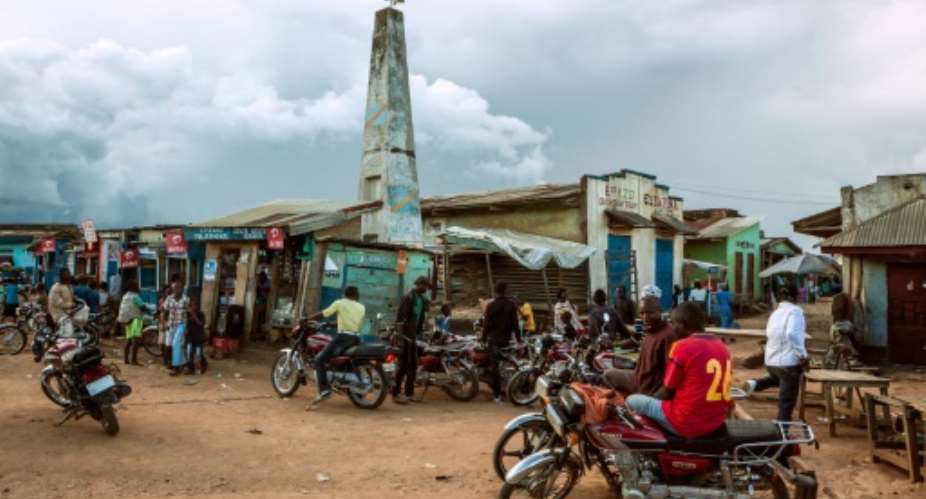Kinshasa (AFP) - A strike called by the opposition to warn Democratic Republic of Congo's President Joseph Kabila against trying to cling to power disrupted life in Kinshasa Tuesday.
Most shops were closed and buses of the Transco public transport service were almost empty.
A stoppage by many taxis and motorcycle taxis also prevented people from getting to work.
"We knew there would be no classes, but I came all the same to see for myself," secondary schoolgirl Priscilla said outside her school in the south of the metropolis of 10 million people.
The strike "call to the people" was issued by a coalition including dozens of political parties and civil society organisations allied to the two main opposition parties in parliament and the Group of Seven (G7), consisting of parties that quit the presidential majority last November.
Opposition leaders believe that Kabila, in power since 2001, wants to get round the constitution to run for office again, after his final mandate expires in December. Kabila's foes argue that his call for dialogue is a ploy ahead of elections due at the end of the year.
The protest was also timed to mark the February 16 anniversary of a bloody crackdown on the "Christian march" of 1992, when many thousands of Roman Catholics rallied in a bid to persuade then dictator Mobutu Sese Seko to open the way for democracy.
Police opened fire on the marchers, killing some 20 of them according to authorities, while organisers said about 100 people had been shot dead.
- 'More fear than harm' -
In January 2015, several dozen people were killed in Kinshasa when security forces cracked down on rioters after an opposition demonstration spiralled out of control of the organisers.
Ahead of Tuesday's protest, police had announced a massive deployment to ensure that strikers did not try to prevent people who wanted to work from going to their jobs, but few police officers were seen on the streets except around the parliament buildings.
"There is more fear than harm this morning," civil servant Henri-Paul told AFP at a bus stop where he and 10 other people had been waiting for two hours. "Since there are no break-ins, life is timidly picking up. I'm going to work to avoid being punished."
At 9:00 am (0800 GMT), it was impossible to pick up the French world service radio RFI, which is widely popular in DR Congo. Both the local frequency and the one from Brazzaville, capital of the Republic of Congo across the Congo river, had been scrambled.
"I'm following the strike," said Mardochee Nsele, a 30-year-old with a law degree who drives a motorcycle taxi to earn his crust. "Perhaps it will change something in this country. It has to change, good governance can't emerge if there is no democracy."





 Dumsor: Don't rush to demand timetable; the problem may be temporary — Atik Moha...
Dumsor: Don't rush to demand timetable; the problem may be temporary — Atik Moha...
 Space X Starlink’s satellite broadband approved in Ghana — NCA
Space X Starlink’s satellite broadband approved in Ghana — NCA
 2024 election will be decided on the grounds of the economy; choice of running m...
2024 election will be decided on the grounds of the economy; choice of running m...
 Dumsor: We're demanding less; just give us a timetable — Kwesi Pratt to ECG
Dumsor: We're demanding less; just give us a timetable — Kwesi Pratt to ECG
 Do I have to apologise for doing my security work, I won’t – Simon Osei-Mensah r...
Do I have to apologise for doing my security work, I won’t – Simon Osei-Mensah r...
 All my businesses have collapsed under Akufo-Addo — NDC Central regional chair
All my businesses have collapsed under Akufo-Addo — NDC Central regional chair
 Military, Prison Officers clash in Bawku, three injured
Military, Prison Officers clash in Bawku, three injured
 GRA-SML contract: MFWA files RTI request demanding KPMG report
GRA-SML contract: MFWA files RTI request demanding KPMG report
 Court threatens to call second accused to testify if NDC's Ofosu Ampofo fails to...
Court threatens to call second accused to testify if NDC's Ofosu Ampofo fails to...
 Family accuses hospital of medical negligence, extortion in death of 17-year-old...
Family accuses hospital of medical negligence, extortion in death of 17-year-old...
